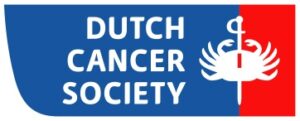Researchers from the Helen Dowling Institute (HDI) and Tilburg University are collaborating in a project to explore what treatment works best for the individual cancer patient suffering from chronic fatigue. One in three cancer patients suffer from severe fatigue up till months and even years after successful treatment. As the number of cancer survivors is rapidly growing, we are in need of highly effective treatments. Currently, we do not know which of treatment is most effective for the individual patient.
Chronic cancer-related fatigue
One of the most prevalent side effects of cancer and its treatment is fatigue. It is characterized by feelings of weakness, exhaustion and lack of energy. One third of cancer patients suffer from severe fatigue up till months and even years after successful treatment. This persistent fatigue, which is defined as Chronic Cancer-Related Fatigue (CCRF), is a complex, multifactorial condition that is often accompanied by significant distress and reduces patients’ quality of life. As the number of cancer survivors is expected to increase considerably in the next years, the need for highly effective treatments will become even more pressing. While existing treatment options can be effective, we do not know which (combination) of treatment is most effective for the individual patient.
The REFINE project
In the REFINE project, funded by the Dutch Cancer Society, we will explore what treatment is most effective for the individual patient suffering from chronic cancer-related fatigue. By taking the network approach and focusing on the patient perspective we hope to contribute to more personalized and precise treatment for cancer patients.
The plan
First, we will examine group-level networks to identify important risk and protective factors that are related to fatigue. At the same time we will conduct qualitative research to explore the patient’s perspective on what they experience as helpful when handling fatigue. Next, we will use the input from these studies to set up an ESM (experience sampling method) study and explore individual dynamic networks of cancer-related fatigue. We want to explore whether these networks can help patients and therapists to decide what treatment would be most beneficial for them.
Project team
The project team consists of dr. Marije van der Lee (principal investigator), dr. Angelique Cramer (principal investigator), prof. dr. Jenny Slatman, dr. Melanie Schellekens (postdoc), dr. Marije Wolvers (postdoc), Tom Bootsma (PhD student), and Rosalie van Woezik (research assistant).

